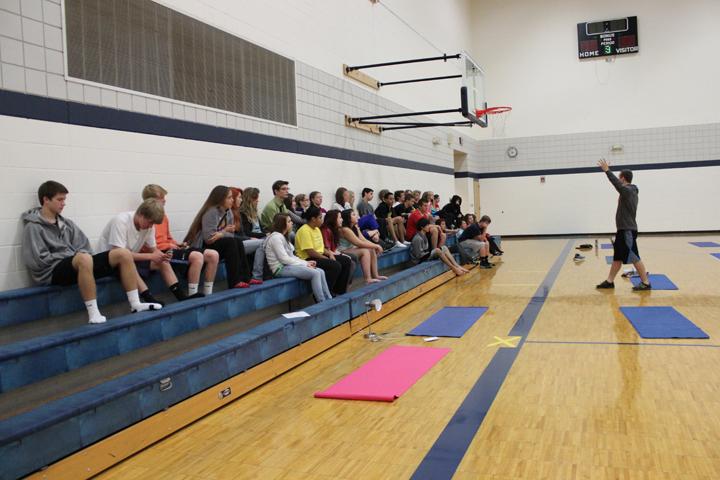Spanish teacher Kristen Montroy begins greeting her class with a brief idea or video to catch each student’s attention to begin “Whale Talk” days. It takes a few minutes to get each students involvement, but once they hit a topic, the ideas and opinions start flowing out. Twenty five minutes has been incorporated into the schedule once a week to make time for discussion over the book and Montroy does not intend to waste it.
Each classroom and teacher has been taking their own approach on the book and discussion in order to engage her students. Montroy gets her students involved by relating the book to real issues that students face every day.
“Once we hit a topic students start participating a lot,” Montroy said. “So much so that I’ve had to remind them one at a time.”
By relating the contents of the book to the bullying that occurs right in front of us every day, Montroy creates a comfortable setting for her students to voice their opinions.
“You have to be willing to open yourself up a little bit,” Montroy said.
Although teachers are doing their best to help get every student involved in discussion, many students are still not becoming fully engaged.
“The idea had good intentions, but the way it was executed I think was poor,” senior Kennedy Kaufman said. “A lot of students aren’t participating in it and it seems like a waste of time.”
Along with Kaufman, junior Joe Wisniewski thinks that the idea is falling short due to the fact that very few students are actually reading the book.
“If they’re going to do it, they should either force us to read it or just not do it,” Wisniewski said.
Despite a few minor negatives, the encouraged reading of “Whale Talk” throughout the high school has been a giant leap in the right direction for Grand Haven.
“I think that any time that we can put a face to an issue, a name to a problem, voice concerns and hear from each other that this is happening to anyone and everyone and not just some people, then maybe the less we will let it happen around us,” Montroy said.

